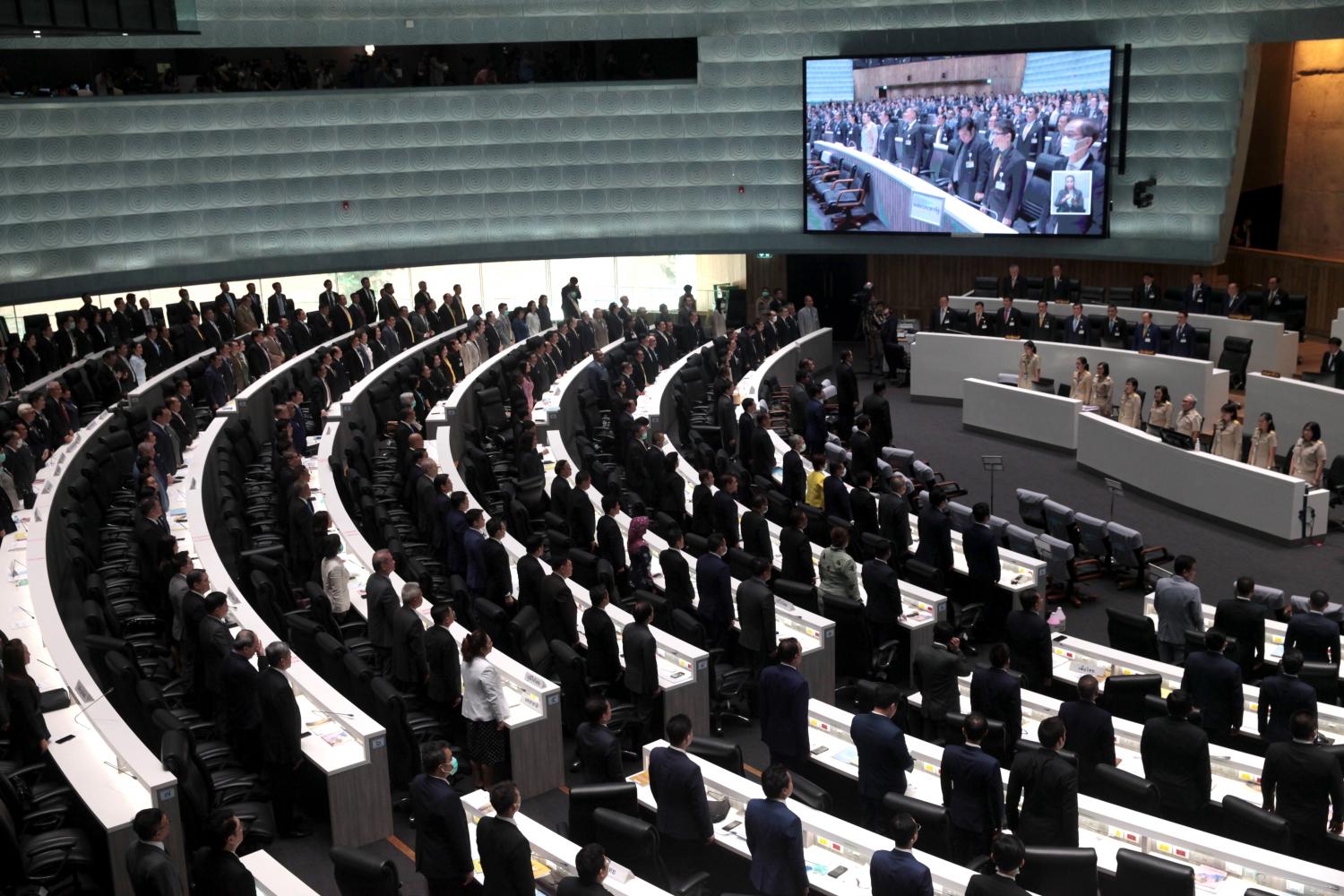
All eyes are on opposition parties as another motion of no-confidence in the government draws near. The debate, tentatively scheduled for Feb 16-19, will be a test to see whether the bloc can make a difference, unlike in the previous attempt.
The opposition has targeted 10 cabinet ministers, including Prime Minister Prayut Chan-o-cha, and his brothers in arms, Deputy Prime Minister Gen Prawit Wongsuwon, and Interior Minister Gen Anupong Paochinda.
Evidently, pressure has built up on the opposition, with several people waiting to see if it can avoid its past mistake, stemming from a lack of unity between the Pheu Thai and Move Forward parties, and meet public expectations.
In fact, last year's lacklustre debate was blamed on Pheu Thai which was accused of having a secret deal, as ordered by Thaksin Shinawatra, with Gen Prawit, allowing the deputy PM to escape a grilling.
It should be noted that the Prayut administration, from its beginnings as a wafer-thin coalition, has evolved and become strong, following a swath of political manoevres, like the so-called siphon technique, drawing rebel politicians from other parties. With the support of a clear House majority, it's unlikely the government will suffer any scratches. But if the opposition comes prepared and can provide strong evidence of malfeasance and corruption and challenge the government's legitimacy, its performance will cause public confidence in the government to plummet.
It's expected the opposition will focus on mismanagement of the Covid-19 pandemic, particularly alleged malfeasance, irregularities, and graft in some state agencies during the surge of new cases that has caused further damage to the country's economy, and hardship for the people.
So far, things seem promising, compared to the previous debate, insofar as both Pheu Thai and Move Forward share common ground in their wish to see the grilling of Gen Prawit who faces added pressure this time as leader of the Palang Pracharath Party, as well as Gen Anupong. Among the other targets are Public Health Minister Anutin Charnvirakul, Transport Minister Saksayam Chidchob, Commerce Minister Jurin Laksanawisit, and Deputy Interior Minister Niphon Bunyamanee.
One problem that may emerge from having too many ministers in the crosshairs is that the event could be lengthy but without substance. Besides, there is also the possibility that the grilling could forge unity among the party leaders, with no one daring to break ranks. Parties in the coalition will also likely forge deals ahead of the debate regarding voting to ensure collective political survival.
It is crucial that the opposition acquires and is able to present solid evidence which transcends the pedagogy, to pin a particular minister like Mr Saksayam (Bhumjaithai) who stands accused of making ill-gotten gains from mega projects, offering unjustifiable benefits to some large contractors in his circle, among others.
Besides, the public is eager to know whether the opposition will delve deeply into the controversies surrounding recent Covid-19 clusters involving migrant labour smuggling and gambling dens, two major sources of infection, that have pushed the number of cases past the 16,000 mark. In fact, such scandals show the failures of Prime Minister Prayut in running the country, and also his inefficiency as well as his lack of leadership.
The question is: Will the opposition be able to find evidence in these cases, exposing the links between those in illicit businesses with people in government? Given its connections with those in the Royal Thai Police, it shouldn't be too difficult for the Pheu Thai Party to find these links. To not do so would be like staging a political whodunnit without unmasking the bad guys at the end.
Digging into these scandals is important as the Prayut government seems unable to punish anyone. It has just formed two committees, one on migrant labour smuggling and the other on gambling dens, no doubt to buy itself some more time.
Observers are also curious to see whether Pheu Thai, under its new executive committee, can mend its internal problems and improve its performance after being eclipsed by young politicians from Future Forward, which has now morphed into the Move Forward Party.
The two parties in a way are competing for support from the same voter base. The past year saw Future Forward Party and Move Forward Party politicians, mostly new faces equipped with knowledge and strong debating skills, outperform those from Pheu Thai.
The censure debate provides a chance for Pheu Thai which has been revamped, with the help of experience old hands, to make a political comeback. In fact, Pheu Thai has to look beyond the debate and has to prepare itself for the Bangkok gubernatorial election, which will take place at the end of this year, where a battle with Move Forward awaits.
For Move Forward, despite the huge losses suffered by its affiliate entity, the Progressive Movement, in recent Provincial Administration Organisation polls, the party still has a key role to play in Thai politics, given its ability to connect with the young and its involvement in pro-reform movements. Although these groups have been quiet recently, they will soon resume activities. Campaign issues such as charter amendment are sure to heat up amid rising political awareness. Under such circumstances, Move Forward is well placed to cash in here.
Lest we forget, street politics goes far beyond formal politics. If conventional politicians still play the usual game, and underperform, they must know there is a high cost to pay. The opposition has a duty to try and convince the public of the government's mismanagement, inefficiency and lack of transparency that resulted in enormous damage to the country. If it succeeds, the government, despite its majority, will have a hard time. With so many ticking time bombs, a large number of people who are neutral may feel the urge to pick a side, and that could do more harm than good to the Prayut government.
